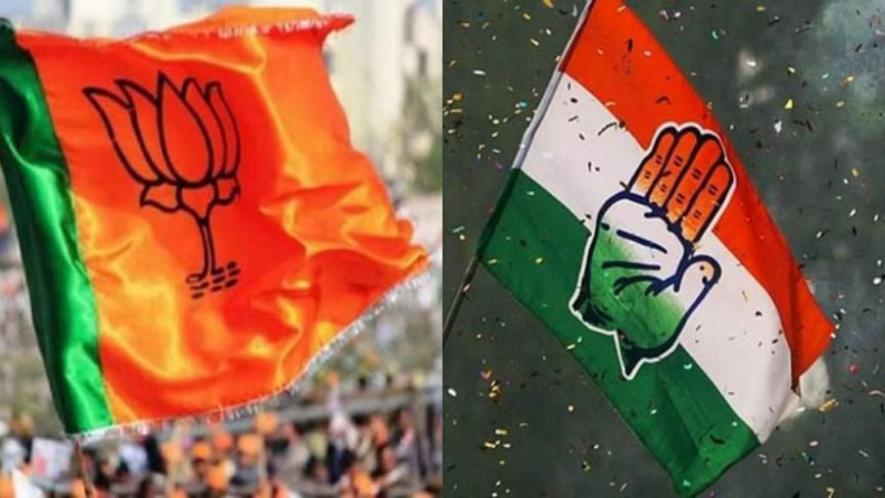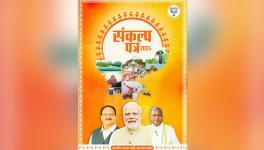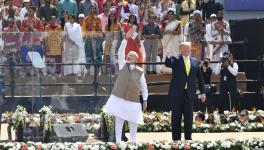Does Congress Still Have Edge Over BJP in Chhattisgarh?

Representational Image. Image Courtesy: PTI
Just three days before the first phase of elections to the Chhattisgarh Assembly on November 7, Prime Minister Narendra Modi, in an election rally in the Durg district, accused Chief Minister Bhupesh Baghel of not having spared even “Mahadev” of his wrongdoings. His accusation is based on the allegations of the Enforcement Directorate (ED) that Rs. 508 crore, seized from an arrested person, were routed from Dubai, where the Mahadev app, an online betting platform, allegedly operates. The implication is that the people of Chhattisgarh were fleeced, and the Congress party and leadership benefitted from it.
Modi made those allegations despite the ED stating that the matter is under investigation. The Prime Minister addressed the crowd attending the rally and claimed, “You have sent Modi to Delhi to deal with corrupt people”, and every paisa looted from the poor in Chhattisgarh would be taken back. He assured that when voted to power, the BJP government would act against the corrupt.
Baghel Rebuts
After Baghel refuted the allegations of corruption and sarcastically referred to “a second manifesto of the Bharatiya Janata Party”, flowing from whatever claims the ED makes. In a counter-allegation, he asked Modi to explain his connection with those running the app from Dubai, for the government of India has the power to arrest them and shut down the app. He alleged that the Central government took no action against the app’s promoters, although the Chhattisgarh government has issued a look-out circular against them.
Indeed, late on Sunday, news came of the Centre taking action against numerous betting apps, including Mahadev. These actions are regularly taken by the Centre, which has been dealing with cases related to betting apps across the country.
Enforcement Directorate Action
Even the ED allegations hardly seem new now, for it has become a familiar pattern to deploy the Central investigative agencies in most non-BJP-ruled states. It levels allegations of corruption against the parties in power in those states, and then the Prime Minister flags those allegations during election rallies. Other top BJP leaders echo the same pattern. Obviously, the objective is to generate a perception that the Opposition regimes are riddled with corruption and should be voted out, and people must vote only for BJP.
Modi Over Regional Leaders
Despite the BJP’s attempts to paint the Baghel government in Chhattisgarh in dark colours, the Congress party seems to have a comfortable edge over BJP in this election. A host of factors bolster this understanding. Unlike BJP, which relies more on its central leadership, Congress, as in Karnataka, has given ample autonomy to Baghel to script its electoral strategy in Chhattisgarh.
Raman Singh of BJP has a record of having served as chief minister of Chhattisgarh thrice but has almost been relegated to oblivion. Only recently was he drafted into campaigning during this election, which indicates the BJP’s greater reliance on the top leadership than regional leaders. Instead of local issues, the central leadership, including the Prime Minister, naturally focus on the national issues, relegating the local concerns that often dominate state elections to the backdrop.
Congress Focus on State Pride and Farmers
Opinion polls reveal that bigger-picture concerns or abstract allegations will find it challenging to overcome the local narratives in Chhattisgarh, like anywhere else. The Baghel campaign trail has generated a public connection by projecting a catalogue of measures such as loan waiver for farmers, relatively high MSP (Minimum Support Price) for paddy at Rs. 2,203 per quintal and adding a bonus. It recently assured that once voted back to power, loan waiver would be repeated.
In its latest election manifesto, Congress has promised to enhance the MSP to Rs 3,200 per quintal. Also, the promise of another “rinn maafi (loan waiver)” has gained tremendous traction, and people, particularly farmers who overwhelmingly voted for Congress in 2018 because of the “rinn maafi” promise, feel that it would again walk the talk in the same manner in which it did during the last five years.
When ex-chief minister Raman Singh was asked what lessons he learnt during his three terms in office (2003-18), he famously said, “I learnt that it is not possible to remain in power in Chhattisgarh, whichever party it be, without satisfying the farmers.” Therefore, the BJP’s manifesto promises a MSP hike and doles for women, among other things.
Above all, the people and voters are made conscious on a sustained basis of the sub-nationalism of the state represented in the slogan “Chhattisgariya, sabse badhiya” (Chhattisgarh is the best). Celebrating the diverse customs, festivals, tribal ethos and culture of the state honours its pride and esteem.
Neutralising Communal Narrative
The communal narrative spun by BJP around the cow protection issue has ruined the household economy of farmers professing diverse faiths, as it prevented them from engaging in any trade related to cows or their progeny.
In a clear response to the people’s demands, the Chhattisgarh government is collecting cow dung from people at Rs. 2 a kilo and setting an example of enabling the farmers to earn some money. It may not be enough to take care of unproductive cattle. But such a measure has neutralised the BJP’s communal narrative spun around the cow protection issue.
Such an approach reminds me of the words of Mahatma Gandhi, who 76 years back, while addressing a prayer meeting on November 20,1947 in Delhi, insightfully stated that India suffered substantial economic loss because people did know that dung and urine of cattle and even the dead cattle could be used most profitably.
Sub-nationalism Around Festivals
The sub-nationalism of Chhattisgarh manifested in its multiple festivals and cultures has been employed by Baghel to arouse people’s pride and self-esteem and make them feel unique and important. Local festivals like Pola, Gedi and Hareli are integral to the texture of their life. The declaration of these festivals as holidays has gone down well with people who take pride in their cultural liberty, which often gets imperiled by aggressive majoritarianism and polarisation.
The Baghel government’s decision to transform the small temple of Kaushalya, Lord Ram’s mother, into a grand one, is noteworthy, too. It forms part of Ram Van Gaman Paryatan Paripath, under which the route Lord Ram is said to have traversed after his exile from Ayodhya is being re-fashioned in a localised religious imagination.
Will Modi's Appeal Work?
In the face of such a campaign strategy, at the heart of which are farmers and the self-esteem of the people of Chhattisgarh, the BJP’s use of the ED is inadequate to construct a narrative that could attract voters.
Even Modi’s appeal and aggressive Hindutva and reliance on the ED for electoral gain by disregarding core issues of people might prove counterproductive. After Congress party’s victory and BJP’s defeat in Karnataka, the RSS mouthpiece Organiser, in its editorial, wrote that only Modi’s image and Hindutva would not fetch enough votes for the party. BJP should pay heed to those words. Of course, one must also patiently await the results (scheduled to be declared on December 3) to appreciate the extent to which either party gets people’s support.
The author served as the Officer on Special Duty to the President of India, KR Narayanan. The views are personal.
Get the latest reports & analysis with people's perspective on Protests, movements & deep analytical videos, discussions of the current affairs in your Telegram app. Subscribe to NewsClick's Telegram channel & get Real-Time updates on stories, as they get published on our website.
























